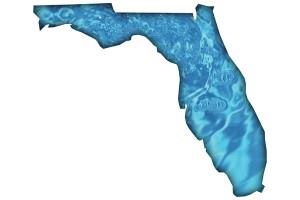Florida’s legislative session ended prematurely Tuesday, April 28, killing a bill containing measures that professionals and consumer advocates seemed to agree were vital to the safety of the state’s public pools. The surprising turn of events had nothing to do with the pool legislation. Lawmakers were at an impasse over whether to expand Medicaid, prompting the House to abruptly adjourn its annual session three days early.
This left dozens of major bills in limbo. Among them: Senate Bill 1232, which proposed changes to the state’s building code. The legislation contained language that would have restored the Department of Health’s authority to enforce certain measures for maintaining the safety of public pools.
The bill also sought to establish a special task force to address electrical hazards in pools.
SEE MORE: Electrical Safety Legislation Also Dies
Both efforts — and countless others not related to the pool and spa industry — collapsed amid a heated healthcare debate.
U.S. Rep. Debbie Wasserman Schultz, the driving force behind the Virginia Graeme Baker Pool and Spa Safety Act, was disappointed in the outcome.
“The Florida House’s irresponsible decision to end their session early without fixing this issue through S.B. 1232 leaves our children, families, and tourists in danger this pool season,” Wasserman Schultz said in an email to PSN.
The role inspectors play in overseeing the state’s 37,000 public pools has been in question lately. For decades, health officials have conducted biennial inspections, operating from an extensive checklist that included critical safety equipment such as gates, handrails, depth markers and suction outlet covers. The department finds tens of thousands of violations each year, according to industry observers.
However, a 2012 law meant to remove duplicative functions between state agencies labeled much of the checklist details as “construction items” that should fall under the purview of the Florida Building Commission. That leaves health officials little to inspect beyond water quality.
“It’s the equivalent of a meat inspector saying ‘We can look at the bathroom, but not the floor of the meat processing plant,” said Alan Korn, executive director of Abbey’s Hope Charitable Foundation, a Minneapolis-based nonprofit named after 6-year-old Abbey Taylor, who died after being caught in a suction vortex at a country club swimming pool.
But the building commission does not perform routine inspections after a facility is constructed. Without health officials on the frontlines ensuring continued compliance, industry and safety advocates fear safety features could fall into disrepair. This is especially true of VGBA-compliant suction outlet covers, which are federally mandated to be replaced every five to seven years.
“It arguably could mean many public pools would be noncompliant under federal law,” said Korn, who, as former executive director of Safe Kids USA, was intimately involved in the passage of the VGBA.
The health department has spent the past several years trying to figure out how to scale back its duties to comply with the 2012 law, but has yet to establish any concrete resolutions. That’s in part because the Florida Swimming Pool Association, working alongside other industry organizations, has convinced the agency to postpone any final decisions regarding the public pool rule until they can issue a legislative fix.
But that proved more difficult than planned. Passage of the pool language had been uncertain even before the unexpected adjournment.
The House and Senate were split on whether to include the pool language in the building code. U.S. Rep. Larry Ahern, a former pool contractor, amended the House version of the bill, HB 915, with the language regarding commercial-pool inspections, but it got stripped out. The senate version, however, included the measure. The bills needed to be reconciled so that a cohesive law could be presented to the governor.
Industry officials then executed a sweeping call-to-action campaign, rallying citizens to call and tweet state officials to get the swimming pool safety measures passed. But then the House erupted into a fracas, leaving a pile of unfinished business in its wake.
“As somebody who’s been in the process for a while, my jaw just dropped,” said Jennifer Hatfield, FSPA’s government relations consultant.
Legislators will have to convene in Tallahassee for a special session in order to pass a state budget sometime before the end of the fiscal year. Hatfield hopes this presents an opportunity to revisit the issue.
“It’s a longshot, but it’s a possibility,” she said.
In the meantime, FSPA, along with the United Pool & Spa Association, APSP, the Building Officials Association of Florida and leading safety organizations such as Safe Kids USA and Abbey’s Hope — collectively known as the Swimming Pool Industry Coalition — will regroup to determine the next steps.
“We’re going to explore every avenue we can,” Hatfield said.


